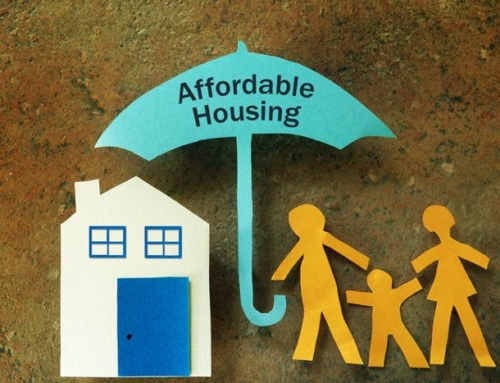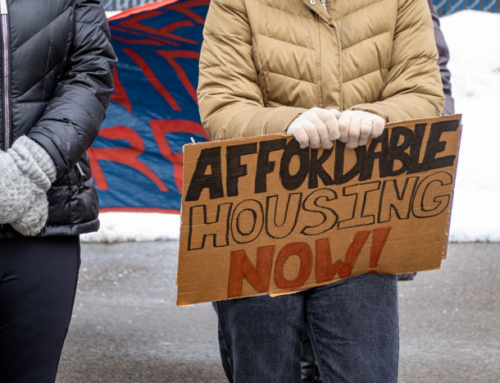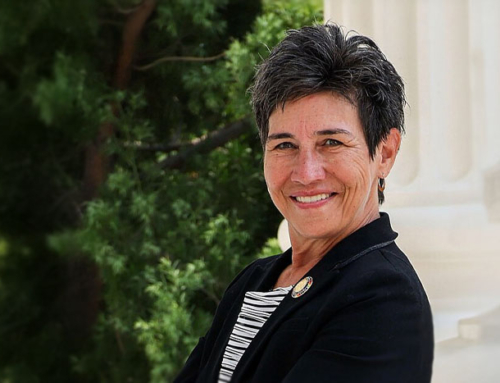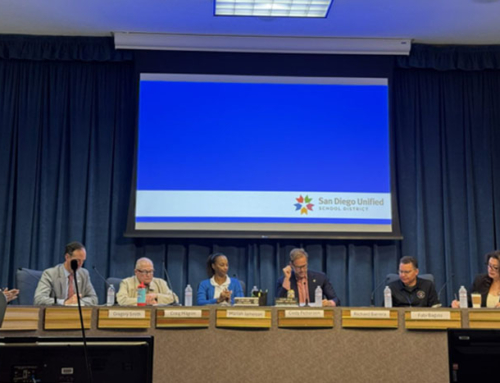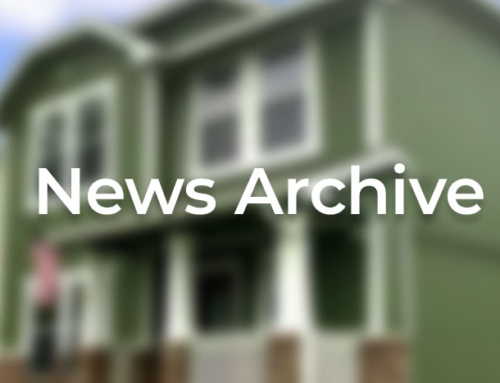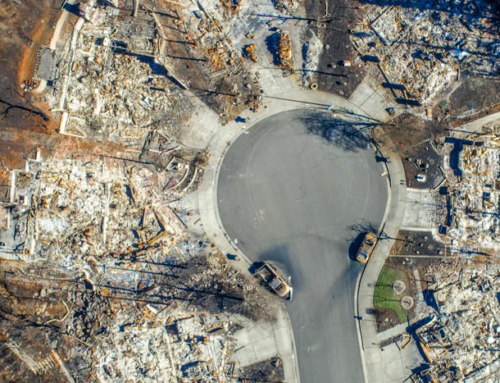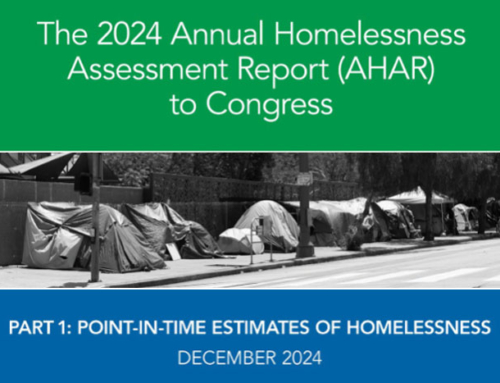Dozens of Priority Housing Bills Move Forward
Dozens of bills that address the State’s housing and homelessness needs met the deadline of June 2nd to move out of their house of origin. Those that received the needed votes to progress to the second house now will begin to move through the Committee process. All bills must be approved and forwarded to the Governor for consideration by September 14th.
There are a number of key bills moving forward that the LeSar team continues to watch, which we have highlighted here.
Production
- Senate Bill 4 (Weiner, San Francisco) – Establishes the Affordable Housing on Faith Lands Act to streamline the development of new affordable homes on land owned by faith-based institutions and nonprofit colleges by allowing multifamily housing by right, regardless of local zoning restrictions, as long as it is consistent with all local objective standards and complies with identified environmental protections. The bill would require the payment of prevailing wages on projects of more than ten units. Projects of more than 50 units would need to offer employment to apprentices and pay for health care for construction workers and their families. Homes must be maintained as affordable to families earning 80% or less of the area median income for a minimum of 55 years. Sponsored by the Non-Profit Housing Association of Northern California, the Southern California Association of Non-Profit Housing, the Jewish Public Affairs Committee of California, the California Conference of Carpenters, and the Inner City Law Center, the bill passed the Senate with a vote of 33-2 and is now in the Assembly for consideration.
- Senate Bill 20 (Rubio) – Would authorize two or more cities to establish a joint powers authority to raise funding for affordable housing. The new authority would have the powers to plan and construct housing for the homeless and lower-income households, acquire housing of five or more units, assist a nonprofit corporation in buying housing with any number of units, receive both public and private funding, and issue bonds and other debt. A number of new joint powers authorities/housing trusts have been created in recent years, several of which were created through specific legislative action. This bill will make it easier for jurisdictions throughout the State to establish similar financing partnerships. The bill passed the Senate with a 36-0 vote and is now in the Assembly.
- Senate Bill 423 (Wiener, San Francisco) – Extends and strengthens SB 35 (2017) to further streamline and accelerate housing permits in localities that are underperforming on meeting RHNA goals. The bill originally would have removed the sunset (which expires in 2025) and made it permanent, as well as altered requirements for skilled and trained labor and expanded the bill’s provisions to include properties governed by the California Coastal Commission. However, in response to labor concerns, the bill was recently amended to, among other provisions, sunset the bill at the end of 2035 and require that mixed-income developments more than 85 feet tall use skilled and trained labor. The bill passed the Senate with a 29-5 vote and is now in the Assembly pending committee assignment.
- Senate Bill 440 (Skinner, Berkeley) – Facilitates the creation of regional housing agencies without the need for individual bills in the future. SB 440 would authorize two or more local governments to establish a regional housing authority to raise, administer, and allocate funds and provide technical assistance to create new affordable homes. The new authority would be a separate legal entity reporting to a board that is comprised of elected officials from the participating jurisdictions and would have the powers to apply for grants and loans, make grants or loans, purchase, manage, and land bank property, and accept surplus property from the State and other jurisdictions. To fund its activities, the authority could issue general obligation bonds, adopt a commercial linkage fee, or go to the voters for approval of special taxes such as a parcel tax or business tax. Funds raised could be used for development of new affordable housing, preservation of existing housing, planning and technical assistance related to housing, and infrastructure needed to support affordable housing. SB 440 was approved by the Senate and is in the Assembly awaiting a committee assignment.
- Senate Bill 450 (Atkins, San Diego) –Would eliminate roadblocks created to the implementation of Senate Bill 9 (2021), a bill that eliminated single-family zoning in California. Specifically, SB 450 would prohibit jurisdictions from creating objective zoning, subdivision, or design standards for an SB 9 project that are not applied to the underlying single-family zoning, clarify that objective standards can be applied if they are related to the design or improvement of a site, set a 60-day timeframe for jurisdictions to respond to an SB 9 application or the application is deemed approved, set requirements for application denials that would require jurisdictions to provide a complete list of items that are deficient and to identify how these concerns can be rectified, and require that HCD provide notification to any jurisdiction of a violation of SB 9 and to notify the Attorney General. The bill passed the Senate with a 30-7 vote and is in the Assembly, where it has been double-referred to the Committees on Housing and Community Development and Local Government.
- Assembly Bill 1485 (Haney, San Francisco) – Would permit both HCD and the Attorney General to intervene in any legal action regarding violations of housing laws, including the Housing Accountability Act and the Housing Crisis Act of 2019. Currently, while both HCD and the AG can bring direct enforcement action against local governments, if the AG wants to represent the State’s interest in lawsuits filed by third parties, it must petition the court to intervene, adding several months to the litigation process. The bill passed the Assembly with a 56-16 vote and is awaiting committee assignment in the Senate.
Preservation
- Senate Bill 225 (Caballero, Merced) – Creates the Community Anti-Displacement and Preservation Program (CAPP), a new State program that will provide revolving short-term acquisition capital and long-term public subsidy to acquire existing homes, preserve affordability for low-income residents, stabilize families, and prevent displacement. According to the bill’s sponsors, Enterprise Community Partners, Housing California, and Public Advocates, CAPP will create a partnership between the State Department of Housing and Community Development, community development financial institutions, and local government agencies with the goal of growing the local capacity of community development corporations, community land trusts, nonprofit developers, and local jurisdictions to respond to preservation and displacement needs. The bill is aligned with a $200 million budget request (over two years). The bill moved off the Senate floor with a vote of 33-4 and is now in the Assembly.
Protection
- Assembly Bill 653 (Reyes, San Bernardino) – Creates a new program—the Federal Voucher Acceleration Program—to provide funding to increase the use of housing choice vouchers, by supporting increased housing navigation and housing search assistance, landlord incentives, and security deposits to help voucher holders access homes in low poverty neighborhoods. Additionally, housing authorities with low lease-up rates would be required to use new evidence-based tools to increase utilization and work with the State Department of Housing and Community Development to analyze and improve their policies and program. Sponsored by the California Rural Legal Assistance Foundation, the Corporation for Supportive Housing, Housing California, the National Housing Law Project, the United Ways of California, and the Western Center on Law and Poverty, the bill passed the Assembly with a vote of 76-0 and will now move to the Senate for consideration.
Bills to Create Social Housing Advance
Three bills that would create opportunities for social housing continue to move through the legislative process. The concept of social housing can be defined in many ways, but it typically includes a number of features, including:
- A mix of incomes ranging from extremely low-income income households (those earning 30% of area median income and below) to middle income, to market rate.
- Is developed and owned by a public-purpose entity, including public agency, a limited-equity housing cooperative, a local housing authority, or a mission-driven nonprofit entity.
- Is affordable in perpetuity, with units permanently deed-restricted to be affordable for a project’s useful life.
- Includes strong tenant protections, tenant rights, and tenant engagement in decision making around the operations and management of the developments.
- Cannot be sold or transferred to any private person, for-profit entity, or public-private partnership.
The three bills are alike in many ways, though there are a few key differences, including organizational structure, incomes served, and identified financing.
Assembly Bill 309 (Lee, Milpitas) – would enact the Social Housing Act and create a new independent State agency called the California Housing Authority with the authority to construct housing and lease it to a mix of household income ranges through both an ownership and rental model. AB 309 would allow a broad range of incomes, from ELI to market rate. The bill is different from the other two in a few ways:
- The bill does not have a funding source and would require an appropriation. The bill assumes passage of a General Obligation Bond, which would require 2/3rds approval by the State’s voters.
- AB 309 would create a new, separate State agency with identified powers, including the ability to develop and own property.
- The bill envisions a mix of incomes, including above moderate-income, so that developments are revenue neutral (the higher income rents subsidize the lower income rents) and are not as reliant on other affordable housing finance programs.
The bill is in the Senate awaiting assignment to committee.
Senate Bill 555 (Wahab, Fremont) – would create the Stable Affordable Housing Act of 2023 to create opportunities for social housing through a mix of acquisition and new construction. The bill sets a 10-year goal to produce 1.2 million units for households earning up to 120% of area median income. It also sets a five-year goal of 600K units, with at least 200,000 of the homes affordable to extremely low-income (those earning 30% of area median income and below) and low-income households (those earning 80% of area median income and below). The bill requires HCD to produce a Social Housing Plan on or before January 1, 2025. A few differences:
- SB 555 does not identify a funding source, but rather asks HCD to develop a plan that would identify available funding, surplus property, and opportunities.
- The bill asks the Legislature to identify revenue sources for a social housing fund and remove constraints and obstacles.
- SB 555 envisions a State Social Housing Authority, but unlike AB 309 it does not create the entity.
- The bill caps incomes at 120% of area median income.
- The bill sets specific targets for production.
SB 555 is in the Assembly awaiting a committee assignment.
Senate Bill 584 (Limon, Santa Barbara) – would create the Laborforce Housing Financing Act of 2023 to develop new housing projects with funding generated from a new 15% tax on short-term rentals. Short term rentals are defined as those units rented for less than 30 days. The bill is an urgency measure and would require HCD to begin collecting the tax on January 1, 2025. It is estimated that the new tax would generate $150 million annually, with funds being distributed to counties of origin (where the tax was collected). The bill would give HCD the responsibility for managing the new program, requiring that 65% of the funds be set aside for new construction, 30% for acquisition/rehabilitation, and 5% for project operating and renter protection programs. The bill differs from the others in a number of ways:
- It has an identified funding source.
- Units created would be available to lower- to middle-income households.
- The bill has set-asides that dictate how funds could be used.
- The bill includes strong labor requirements, including project labor agreements.
SB 584 is in the Assembly awaiting a committee assignment.
In complement to these latest legislative efforts on social housing, LeSar’s Global Policy Leadership Academy Vienna program takes housing policymakers, practitioners, and leaders into the field to learn international best practices from Vienna’s approach to social housing. The Vienna model of social housing that was recently highlighted as a “renter’s utopia” by the New York Times.
© LeSar Holdings/LeSar Development Consultants. All Rights Reserved. Please be advised that any republishing of copyrighted material provided by our organization, in whole or in part, requires prior written authorization. For permission, please reach out to [email protected]. We appreciate your understanding and compliance in upholding copyright laws.






